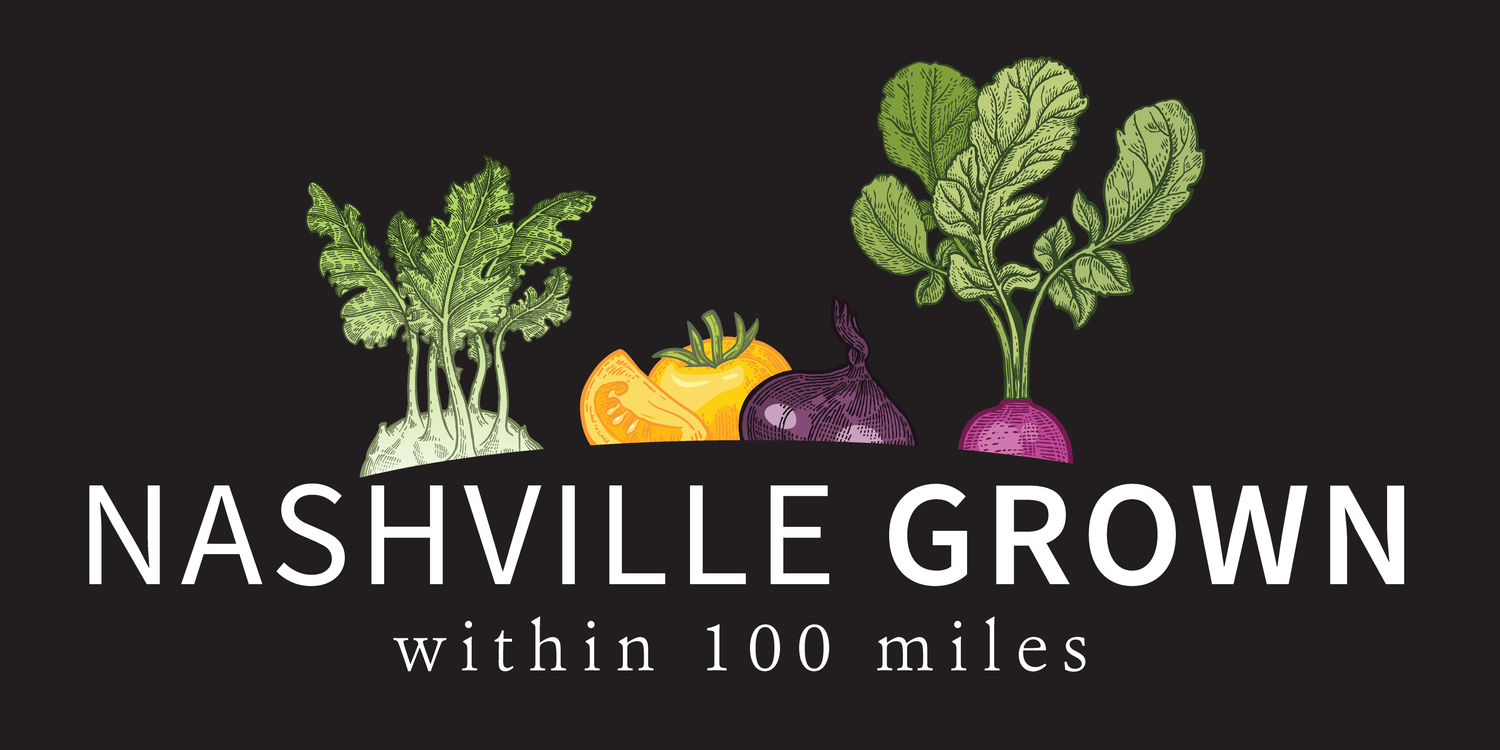The Why
The Problem
It's far easier for large food purchasers in Nashville to buy produce from 2,000 miles away than it is to buy produce that was grown next door. For example, a school might need to call 20 local farms to find lettuce for its salad bar, while it could order a hundred pounds of lettuce from a distributor like Sysco with one mouse click. And even if they did find the lettuce locally, how would they get it? Most small farms lack the funds needed for refrigerated trucks, efficient cold storage, and other services like washing and packaging that most larger buyers demand.
As a result, local farms are largely excluded from the mainstream food system: grocery stores, school and hospital cafeterias, restaurants, and caterers. Yes, farmers markets and CSAs have allowed some farms to thrive despite being locked out of the food supply chain--but if local food is ever going to make up a sizable amount of our food consumption, we need to think bigger. Why have we created a modern food supply chain that is hyper efficient at bringing in food from thousands of miles away, but utterly incapable of sourcing food locally? And what can we do to reverse this situation?
Our Solution
We believe there are some basics needed for a robust local food system--one where the average produce is grown within 100 miles, rather than 2,000. Nashville Grown is a nonprofit enterprise that focuses on connecting our surrounding farms to businesses in the city..
Profitable Farming: If we want local food, we need farmers to make a profit from farming. In the last few years, NG has created over $850,000 in new revenue for local farms, putting that money back into the pockets of our farmers and keeping it in Middle Tennessee.
Production Coordination: Farmers can't sell to wholesale markets if they don't know what those markets demand. We believe that every city needs a local farming production coordinator to channel information from buyer to farmer, and with our Food Hub, we're providing this service to Nashville farms.
Food Distribution: In addition to production information, farmers also need a way to get their produce from farm to market--and they often lack the time and resources to wash, package, and drive across town to distribute their produce. That's why we do it for them.
Branding and Marketing: It should be easy to know which restaurants support—and we mean truly support, not just buy a rustic looking table and call it a day—local farms. Unfortunately, cutting through the noise is harder than it should be. For now, go to the Eat Local page to see the restaurants that order and feature foods from our local farms. Follow us on Instagram (@realnashvillegrown) and meet the celebrity pigs at Long Hungry Creek farm. Not sure what it has to do with branding but they are cute.
Why it Matters
Despite the huge amount of interest in local food, Nashville's farmers are struggling: only 0.36% of Davidson County farmland is still used to farm fruits or vegetables. As a result, we end up importing our food from an average of 2,000 miles away: only about 30 cents of each food dollar stays in the local economy. Based on studies performed by other foodsheds like Cuyahoga County in Ohio, if Davidson County were to grow even 1/3 of its food locally, it would create about 4,000 farming, processing, and food distribution jobs—enough to eliminate unemployment in Davidson County.
And it's not just about economics. That food coming from far away? Well, it's awful. Industrial agribusiness cultivates the same few high-yield crops bred for fast maturation and thick skins—and as a result, we lost 75% of genetic diversity in crops in the last century. Industrial food is also more vulnerable to contamination, since produce from hundreds of farms can be intermingled in one facility. Of course, there's also the huge energy cost of shipping food long distances and keeping it refrigerated for long periods of time, as well as the higher carbon footprint associated with the farming practices used on giant commercial farms.
Meanwhile, small local farms protect biodiversity and grow varieties optimized for taste and nutrition, not dollars and durability. They preserve open space, contain development, improve soil quality, sequester carbon, and can help revitalize blighted urban areas. They connect us to nature and our agricultural heritage, reminding us of our responsibilities to the land and to the earth.

